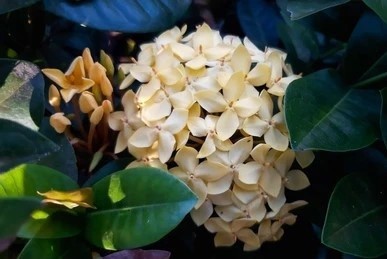Rubiaceae Plants Tissue Culture

Rubiaceae plants are a large family of seed plants with about 500 genera and more than 6,000 species worldwide, mainly distributed in tropical and subtropical regions. This family mainly contains anthraquinone hydroxyl derivatives, cyclic enol ether terpenes, and their glycosides, alkaloids, and other chemical components, with a variety of pharmacological activities such as anti-tumor, anti-bacterial and anti-inflammatory, hypotensive, anti-allergic, anti-viral, and anti-depressant.
Of course, in addition to the great commercial value in medicinal use, Rubiaceae plants also have high economic value in ornamental, timber, food, dye, pigment extraction, spice and fiber products, soil and water conservation, etc., and have good market prospects.
Tissue culture service
The low reproduction rate, slow natural growth, and artificial exploitation have led to the depletion of the wild resources of Rubiaceae plants and the ecological damage caused by mass excavation. Lifeasible provides tissue culture services for the rapid propagation and healing tissue induction of Rubiaceae plants for a wide range of researchers. It can protect the wild resources of Rubiaceae plants from serious destruction and also realize the modern cultivation of Rubiaceae plant production.
Some of the Rubiaceae plants that we have successfully tissue cultured
| Family |
Genus |
Species |
| Rubiaceae |
Rubia |
Rubia sylvatica (Maxim.) Nakai
Rubia cordifolia L. |
| Pentas |
Pentas lanceolata (Forsk.) K Schum. |
| Gardenia |
Gardenia jasminoides Ellis |
| Knoxia |
Knoxia roxburghii |
| Hedyotis |
Hedyotis diffusa Willd.
Hedyotis caudatifolia Merr. et Metcalf |
| Mitchella |
Mitchella undulata |
| Neolamarckia |
Neolamarckia cadamba |
| Leptodermis |
Leptodermis oblonga Bge. |
| Cephalanthus |
Cephalanthus occidentalis L. |
| Paederia |
Paederia scandens (Lour.) Merr. |
| Mussaenda |
Mussaenda pubescens L. |
| Ophiorrhiza |
Ophiorrhiza japonica |
| Nauclea |
Nauclea officinalis (Pierre ex Pit.) Merr. & Chun |
* The list of species that can be tissue cultured is constantly being updated, so please stay tuned.
In addition, Lifeasible has also established suspension cell lines for Rubiaceae plant tissue culture and used them to test the totipotency of the cell lines, which further provides a platform for plant bioreactor for fast propagation of Rubiaceae plants and production of active ingredients such as anthraquinones and anthraquinones.
You want to sign a confidentiality agreement.
You have a specific plant species for your experimental needs.
You have a reliable and relevant cooperation project to discuss.
You are very interested in our project or have any questions.
You need an updated and detailed quotation.
For research or industrial use.



